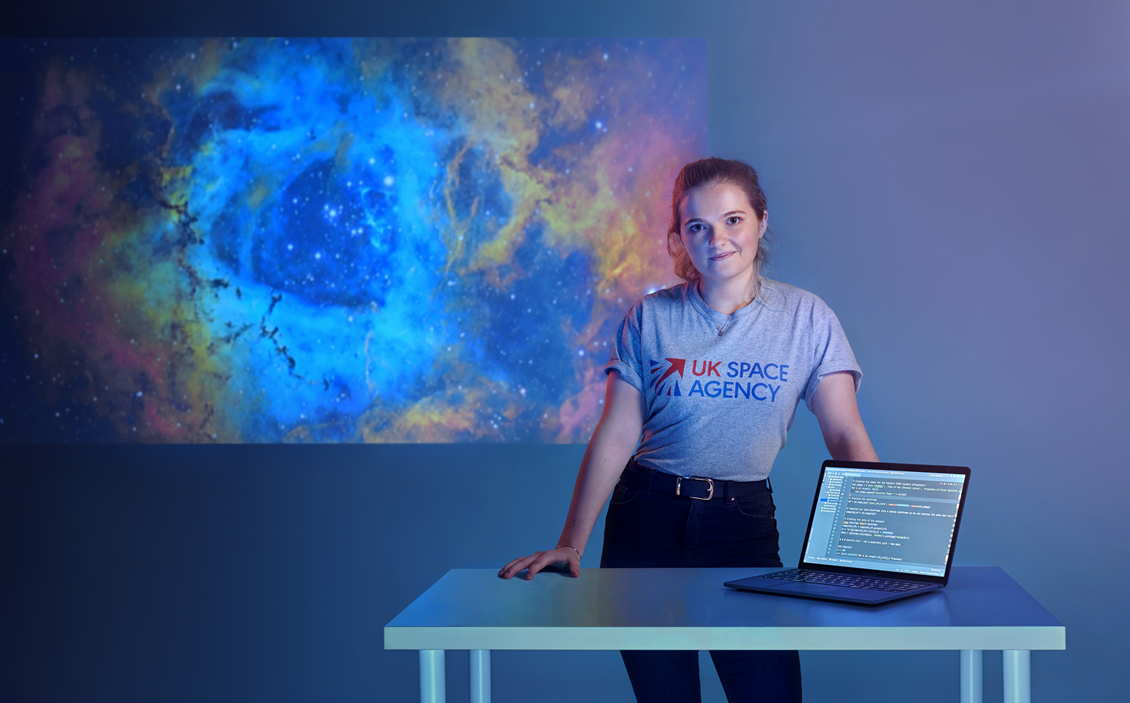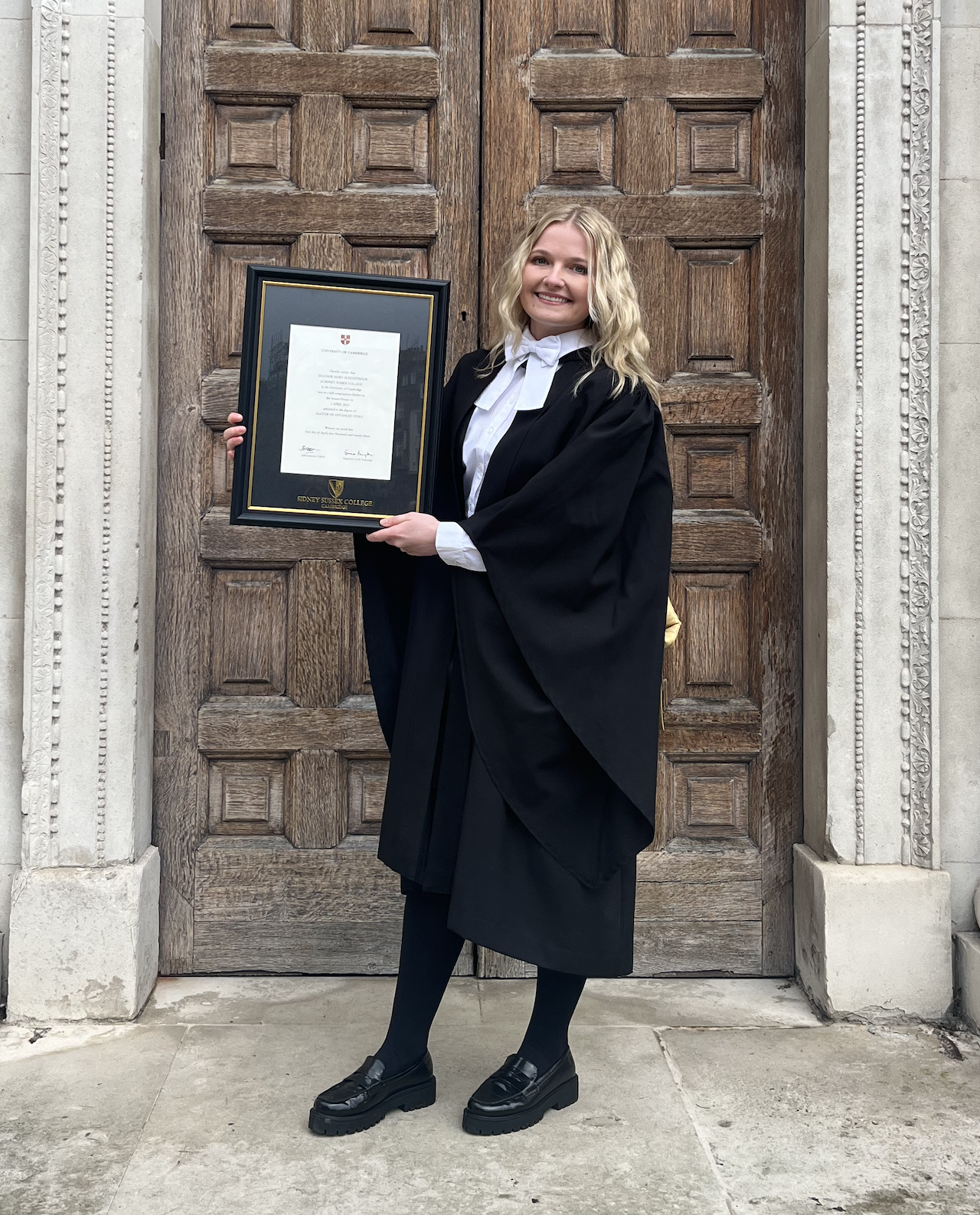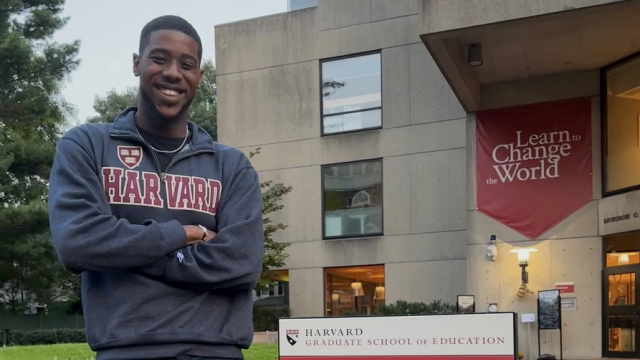Cambridge – the University – can be an intimidating place, but you might wonder what alumna Ellie Sleightholm (2021) had to fear.
By the time she applied to study Part III Maths, Ellie had gained a First from the University of Leeds, winning the King’s Prize and ranking top of her year in Applied Mathematics, and completed a successful internship managed by the UK Space Agency, fronting the official coverage of a Mars landing in the process.
Despite all that, Ellie says, she applied to Cambridge ‘not expecting to get in’: ‘I never really thought I was good enough’.
Arriving at Sidney, she says she knew it was going to be alright after ‘making wonderful friends’ and being recognised by fellow mathematicians from her YouTube channel. (Oh yes, I didn’t mention that by this point Ellie also had a successful YouTube channel, where she has helped thousands of people to learn to code.)
Since graduating from Sidney, Ellie has been working for SmallSpark, a UK space industry start up.
Photo: University of Leeds
There’s so much to discuss, so it’s perhaps easiest to go back to the beginning. Where did your love for maths come from?
‘Well, even in primary school, I was obsessed with science and maths. I’ve always loved it and I’ve had some incredible teachers, particularly for my A levels. They sparked a huge enthusiasm in me and had a real influence too. It’s quite funny really - one of them gave me a pencil and I took it into every single one of my exams as a good luck charm.
'So, maths has always been there for me. I have to say, though, that I didn't realise until much later that there were so many career options for people studying maths.’
So you were excelling at Maths, but also doing well at something quite different…
‘Yes. So I grew up on a farm, just outside York, and I used to race motocross bikes.
‘At the time, motocross was very male dominated and I'd often be the only girl there. Someone mentioned to my dad that there was a women’s championship - I went to a women’s event two weeks later, and ended up winning the British women’s championship in my category.
‘I was maybe 15, 16 - it was crazy. I got to ride for Kawasaki and then with Honda afterwards. It was so cool. I do miss it a lot, but it's a fun fact to pull out at a party - people are like, “You don't look like you race motorbikes.”’
So, what made you stop?
'Well, I'd done my two years of A levels and, at the time, I’d only done Further Maths as an AS level so during the year I took out (to compete internationally), I went back to finish off Further Maths as an A level. On the day before my last exam, I was racing and ended up having a big crash that threw me off my motorbike.
‘I had a head injury, so it was quite a tough time. The doctor said I probably shouldn't go to university - I needed to rest - but I went anyway (laughs). I went to Leeds to study Maths, which was great, and I was fine, but there was a lot I had to cope with.
‘After my head injury, I started getting seizures. I had them quite a lot at Leeds and then they resurfaced quite badly at Cambridge due, I think, to the intensity of the course.'
So, how did that situation play out? Were you offered support?
'Yes, so I jumped into Cambridge - I was really loving it and then the seizures started happening. I think it was maybe Week Three of term, and I’d come from living in Leeds where I was a half hour train ride from my family - being that bit further from home was stressful.
‘I spoke to my tutor and said this is what's happening, can I get some support?
'The people at Sidney were just fantastic. They were always there, checking in.
'They said that even if I were to have a seizure in the middle of the night, there would be somebody to help me.
'That was really, really nice and reassuring, and it definitely helped because my seizures get worse with stress and anxiety. So, yes, I was fortunate to have been so well looked after.
‘That I still graduated… I owe a lot to my family and friends, but also to Sidney - I definitely wouldn't have got through it all without the support I had from the College.’
You mentioned that you didn’t know of many career option for those studying Maths, so where did the connection to the space industry come from?
‘So, when I was in my second year at Leeds, I was applying for internships.
‘Maths students would generally go into teaching or accounting or finance - I thought that was the only route we had, really.
‘I did a bit of research, though, and I learned that the UK Space Agency had a Space Placements in Industry programme. I got an internship on that scheme and that was my first kind of glimpse - me realising that, “I am a Maths student, but I can actually get into the space industry.”
‘I've done a bit of outreach with the UK Space Agency for that reason because I think so many people hear the word “space” and think they have to be an astronaut or to have studied Aerospace Engineering, but there are so many pathways.’
You also presented some videos for them.
'Yes, so I’d done my internship and I spoke to one of the organisers and said I'd love to write a blog - I was a Maths student, I hadn't thought I could get into this area, so it'd be cool to talk about that.
‘They were doing this campaign with (the astronaut) Tim Peake - getting people into the space industry - and I was asked if I would interview him and do an event, but then COVID hit again.
‘A few months later, I got a message saying they were doing this film - would I like to present it, and talk about my experience?
‘And then, having done that video, they (the UK Space Agency) collaborated with the Royal Society of Chemistry on a TikTok live, to cover the landing of the Perseverance Rover on Mars. I co-presented that with Max Tobin from the Ministry of Science – I was at the bottom of the screen and Max was at the top and the NASA live stream was in the middle. We were both joking, “If it doesn't land, or it crashes, we don't know what we’re going to do.” That was my first experience of live presenting.
No pressure...
'Yeah, I know. And the Wi-Fi at my parents is not great, so I was terrified of that as well... It was crazy, really, and it all just stemmed from me sending an e-mail saying I'd love to share my experiences.
Your TikTok launching the UK Government’s Nanosat design competition has chalked up 1.2million views, and content creation has been something you’ve explored elsewhere, hasn’t it? While you were at Leeds, you started Code Of The Future, with videos on YouTube and Instagram. What was the thought behind that platform?
‘Yes, well I started Code of the Future during the COVID lockdown - I just wanted a project to work on. I had learned to code when I first arrived at Leeds. I did one module, Computational Maths, and I was like, “Oh, this is really cool.”
‘When I learn something, I want to share it with people. A big part of it is giving people access to resources that they might not get elsewhere, and most people can't afford to pay for coding courses – they can be really expensive.
‘I watched some YouTube videos, but the presenters had, like, 10 years’ experience. I wanted to do something as someone that had only recently learnt to code.’
I was looking at your channels before this interview. You uploaded 147 videos to that YouTube Channel, in a little over 2 years, and you also offer free coding courses on Udemy. Your ‘TikTok bot’ video has over 61,000 Views, and Code of the Future has 17.5K subscribers on YouTube and 29K Followers on Instagram.
Having established Code of the Future, you then started ‘EllieInSTEM’, which has over 37,000 Followers on Instagram, and you also have a second YouTube channel, with over 13K Subscribers and almost 100 videos.
It's not like you've dipped your toe in the water, is it? This has been a big commitment. Do you sleep?
'I do sleep! (laughs)
‘I've always been passionate and driven. I've got three sisters, and I see them excelling at what they do, and they're also passionate and driven.
‘I love learning. I love what I do and I get enjoyment out of it, but I also do like to just sit and do nothing and chill… sometimes.'
You mentioned Sidney earlier and that you felt you had a bit of Impostor Syndrome before you applied. Did you find it an easy transition, to Cambridge College life?
'Well, I got to Sidney the earliest that you could get to Sidney, in terms of moving in. So I kind of put myself out there a bit and tried to meet up with the other postgrads.
‘On the first proper day I was going to taster sessions. I went to the Fluid Dynamics one and there was this guy who shook my hand and said, “I heard we were getting a famous YouTuber.” I had fewer than 1000 subscribers at that point, but I kind of felt that with that comment the stress was just completely wiped away. I thought Cambridge undergrads were going to see me differently because I had done my undergrad elsewhere.
‘And, honestly, the postgrad community at Sidney was just incredible. I made wonderful friends, and I guess many of those friendships were established straight away.
‘So, yes, I was fortunate: I had really nice people in my lectures; the lecturers were great; Sidney was fantastic. I couldn't have asked for a better transition into the world of Cambridge: it was crazy, but it was great.'
So, since graduating from Sidney, you’ve been working for SmallSpark, a space start up.
'Yes, so I'm an Astrodynamics Software Engineer and essentially what we're doing is building mission planning software. So if you want to send your spacecraft from A to B, our software will help you do that.
‘There’s obviously a lot of maths and physics behind how you get a spacecraft from here to there, and what I'm doing is working on the back end - the maths and the physics - and then that will be linked to the front end, which is going to be a platform that companies can use, and hopefully university students as well.
‘I’m researching cool new maths papers and trying to implement that, and I’m doing a lot of coding as well. It's really, really cool - honestly, I love it, it's great.’
There’s been a huge change in the space industry over the past ten years or so. Not just with new technology, but a kind of decentralisation, with start-ups picking up roles in bigger projects. Is it an exciting time to be in that industry?
‘Yes, definitely. It's such an exciting time to be in the UK space industry because we're getting more funding and there are so many different companies doing such cool things.
‘It's nice for me because I can work for a startup where I have a lot of responsibility. The product we’re developing will hopefully play a huge part in the space industry in years to come. So yes, I’d say to anybody in the UK that wants to get into the space industry, get in now because it's growing so fast.’
If you have something that would make a good news or feature item, please email news@sid.cam.ac.uk




